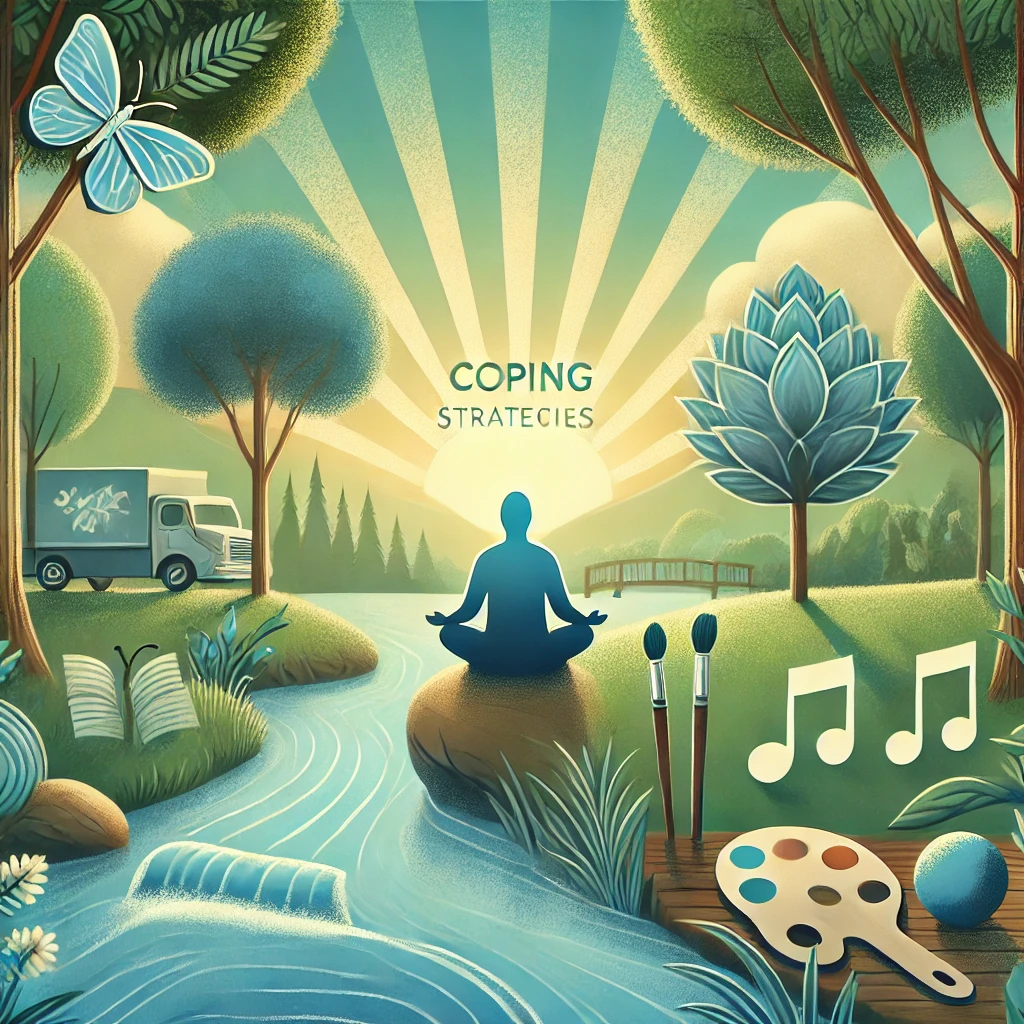Life can often feel overwhelming, and managing stress or anxiety can sometimes seem like a daunting task. At E.L.A.H.A. Insights, we believe that having the right tools can make a significant difference. This A to Z of Coping Strategies provides a broad range of practical, accessible, and effective techniques to help you navigate challenging times with resilience and confidence.
Whether you’re looking for ways to relax, find motivation, or build emotional support, these strategies are designed to empower you to take control of your mental and emotional health, one manageable step at a time. From finding joy in creativity to building healthier habits and nurturing relationships, this guide encourages a proactive and compassionate approach to self-care.
Not every technique will resonate with everyone, and that’s okay—experiment with different approaches, and discover what works best for you. Coping isn’t just about managing stress; it’s about fostering a sense of well-being, growth, and balance in your everyday life.
Let this A to Z guide inspire your journey towards a calmer, more fulfilling life. Dive into the strategies below and start taking small but impactful steps today.
Feeling stressed or overwhelmed? Explore these 26 Coping Strategies to help you manage and thrive:
A – Activity
Find activities that make you happy and energised, whether it’s gardening, painting, reading, or trying out a new hobby.
Tip: Block time in your schedule for these activities—they’re vital for your well-being.
B – Breathe
Calm your mind and body with deep breathing exercises. Inhale deeply, hold briefly, and exhale slowly.
Tip: Try the “4-4-6” technique: inhale for 4 seconds, hold for 4, and exhale for 6.
C – Create
Express your emotions through creative outlets such as painting, writing, singing, or cooking. Creativity nurtures a sense of accomplishment.
Tip: Keep a sketchbook, journal, or instrument nearby for spontaneous creativity.
D – Distract
Shift your focus by engaging in mentally stimulating tasks, such as puzzles, cleaning, or organising. Productive distractions can break negative thought cycles.
Tip: Choose activities that give you a sense of achievement.
E – Exercise
Physical movement boosts endorphins and improves mood. Whether it’s a brisk walk or yoga, find a routine that works for you.
Tip: Start with just 10 minutes a day to build consistency.
F – Friends and Family (and Pets!)
Spending time with loved ones or pets can provide comfort, reduce loneliness, and strengthen your support system.
Tip: Schedule regular catch-ups or walks with those you care about.
G – Goals
Set small, realistic goals to create momentum and a sense of purpose. Breaking tasks into steps makes them manageable.
Tip: Use a planner to track progress and celebrate each milestone.
H – Helpline
Reach out to professional helplines for guidance and support when needed. Talking to a professional can provide clarity.
Tip: Keep emergency numbers saved in your phone or diary for quick access.
I – Ice
Physically cooling down can ground you during overwhelming moments. Try holding an ice cube, washing your face, or stepping outside into the cold air.
Tip: Use this when intense emotions feel unmanageable.
J – Join In
Participate in community activities, clubs, or online groups to build social connections and reduce isolation.
Tip: Volunteering for causes you care about can bring meaning to your efforts.
K – Keep Things Simple
Simplify your to-do list and focus on priorities. Let go of unnecessary stressors and delegate when needed.
Tip: Write down three main tasks each day and concentrate on them.
L – Look for Less Harmful Alternatives
Avoid harmful coping mechanisms by finding healthier ways to manage stress, like meditation or journaling.
Tip: Identify triggers and create a healthier response plan.
M – Music
Music has the power to soothe and uplift. Create playlists tailored to your mood—calm, energised, or reflective.
Tip: Use noise-cancelling headphones for a more immersive experience.
N – Nurture and Nourish
Eat well, stay hydrated, and prioritise self-care. Your physical health plays a key role in your emotional resilience.
Tip: Plan and prep meals for the week to ensure balance and variety.
O – Outside
Nature can rejuvenate the mind. Spend time outdoors, even for a short walk or sitting in a park.
Tip: Practice mindfulness by focusing on the sounds, smells, and sights around you.
P – Problem Solve
Break problems into manageable parts, focus on solutions, and ask for help when needed.
Tip: Write a list of what you can and cannot control to clarify your focus.
Q – Quiet Time
Create space for calm reflection and recharge. Disconnect from devices and enjoy moments of peace.
Tip: Dedicate at least 30 minutes daily to quiet activities like reading or meditating.
R – Relax
Explore relaxation techniques that work for you, such as warm baths, gentle stretches, or guided meditations.
Tip: Experiment with aromatherapy or soft lighting to enhance the atmosphere.
S – Support
Turn to your support network when you need a listening ear or encouragement.
Tip: Build strong connections by regularly checking in with friends or family.
T – Text
A simple message to someone you trust can lift your spirits and remind you of your support system.
Tip: Don’t wait until things feel overwhelming—stay in regular contact.
U – Use Your Talents and Strengths
Do more of what you’re good at, whether it’s writing, problem-solving, or crafting. Using your strengths can build confidence.
Tip: Explore new opportunities to develop your skills.
V – Visualise
Imagine a calming place or situation to soothe your mind. Guided visualisations can help reduce stress.
Tip: Use apps or online videos for inspiration.
W – Write It Down
Journaling can help process thoughts, express emotions, and provide clarity.
Tip: Keep a notebook handy and try writing a few sentences each night.
X – Box or Other Guilty Pleasures
It’s okay to indulge in small pleasures like gaming, watching films, or enjoying a treat. Relaxation is essential too.
Tip: Balance indulgence with productive activities.
Y – You Can Do It!
Believe in your ability to overcome challenges. Use positive affirmations to boost your confidence.
Tip: Write affirmations where you’ll see them daily—on a mirror, fridge, or desk.
Z – Zzzzzz
Sleep is vital for your mental and physical health. Develop a routine to improve the quality of your rest.
Tip: Avoid screens before bed and create a calming nighttime ritual.





